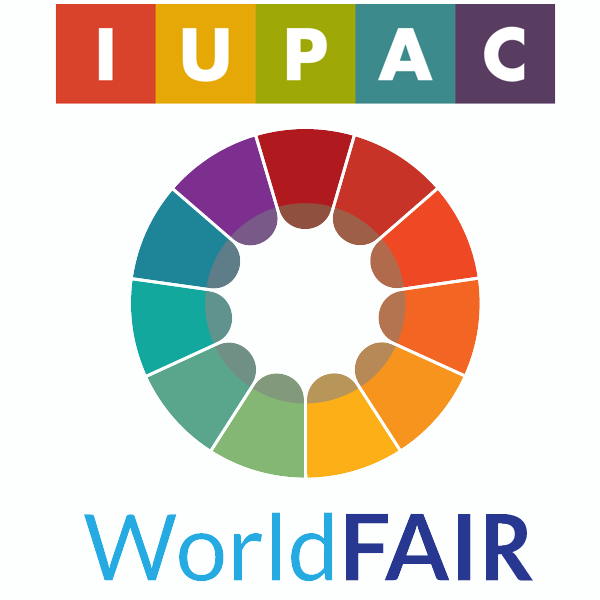Welcome to the IUPAC FAIR Chemistry Cookbook#
Welcome to the IUPAC FAIR Chemistry Cookbook, a self-serve web-based toolbox of interactive demonstrations of community best practices in machine-readable chemical data management. The Cookbook is an openly accessible collaborative resource to exemplify the FAIR data principles and standards in cheminformatics and provide hands-on executable content for experiential learning. It is designed to be an evolving resource for the chemistry community supported by IUPAC (the International Union of Pure and Applied Chemistry) as part of the WorldFAIR Initiative (see About this project).
Chemistry underlies both living and materials systems and chemical data are at the heart of data driven discovery and innovation across the health and environmental science sectors and in many applied engineering fields. Chemical data and analysis tools are increasingly available online and researchers and practitioners alike are increasingly involved in new ways to analyze, visualize, mine, and integrate data and information. In a digital work environment, well-prepared researchers need to be comfortable working their way around digital data formats, code, and online computing platforms. Proficiency in basic digital data handling skills can empower chemists to exploit FAIR and open data resources and handle real-world chemical data scenarios more effectively.
The IUPAC FAIR Chemistry Cookbook is focused on working with chemical data that are findable, accessible, interoperable, and reusable for machine processing [Wil16]. Responsible data sharing and reuse begin with responsible data stewardship. Familiarity with techniques for digitally representing chemical structures and other data components will allow researchers to tap into multiple networked resources for searching and analysis, as well as enable their own data to be more discoverable. Our goal is to get more practical tools & tips in the hands of practicing chemists and others working with digital chemical data, to lower barriers and smooth the adoption of best practices for sharing and reusing FAIR chemical data.
